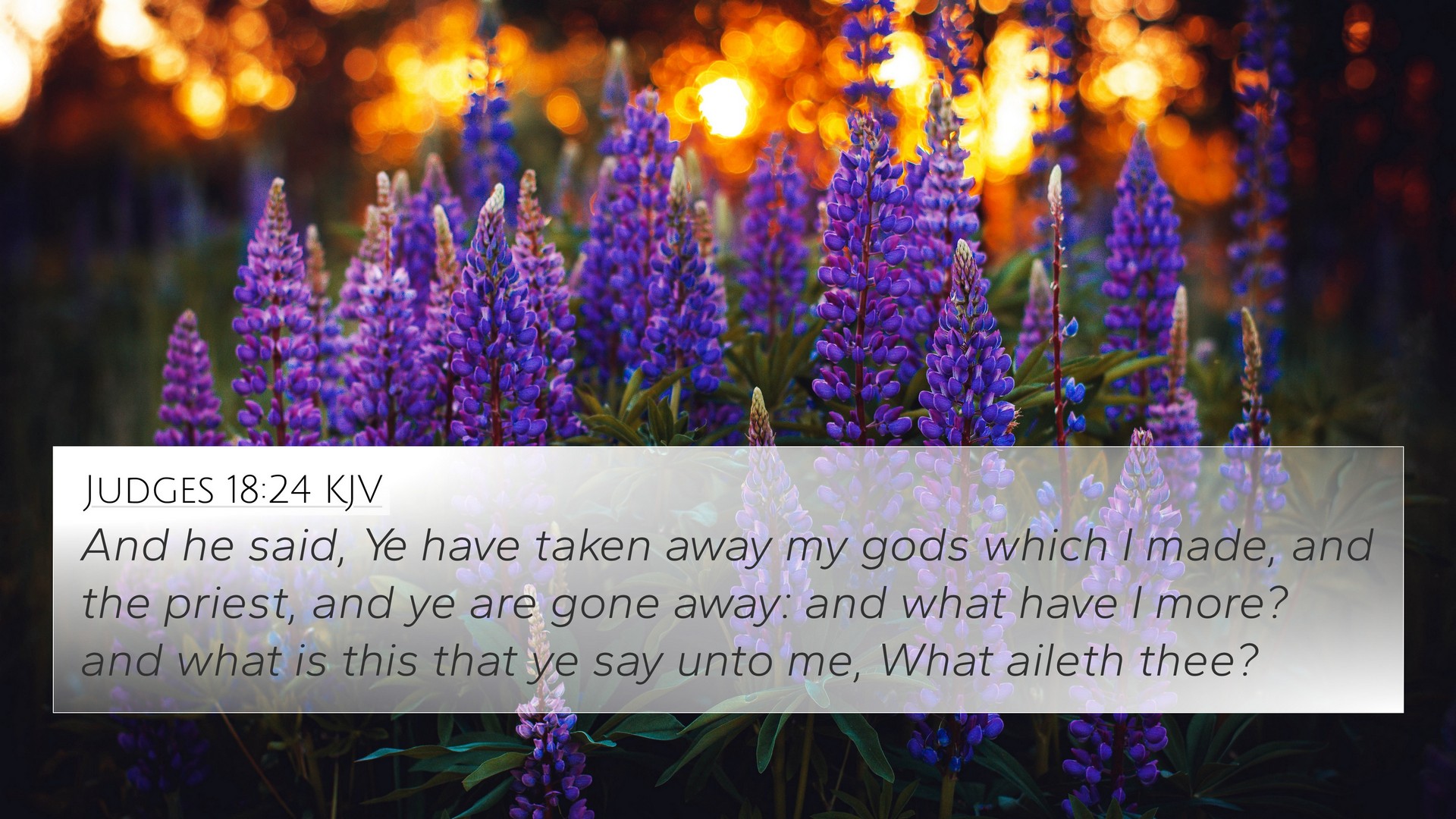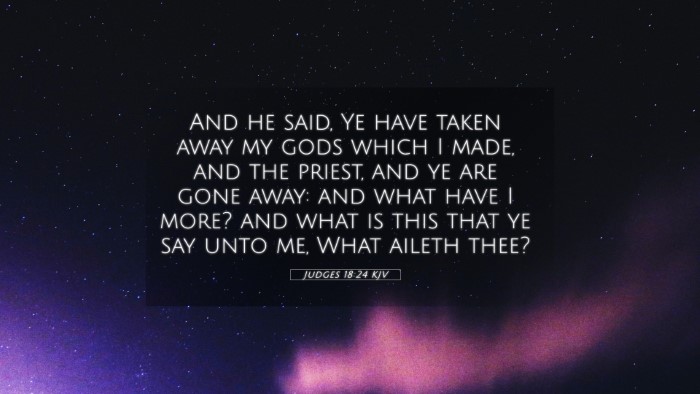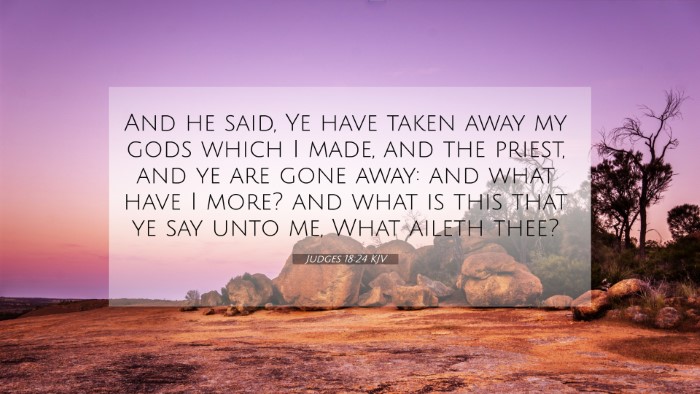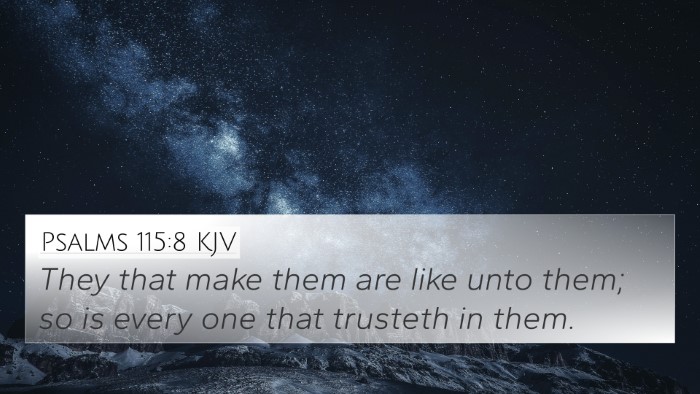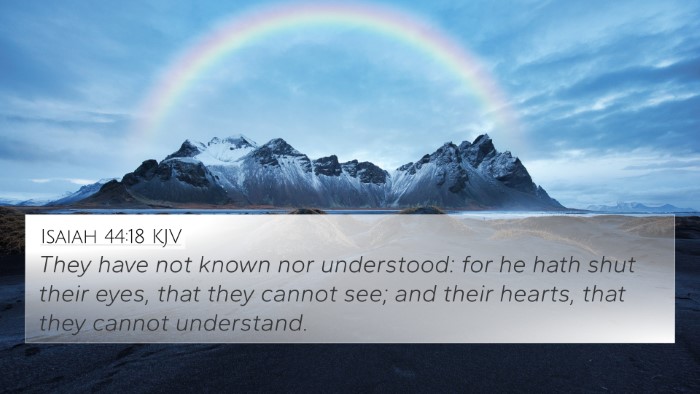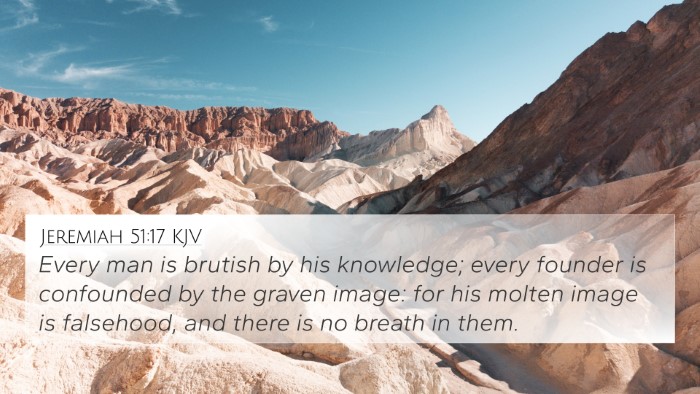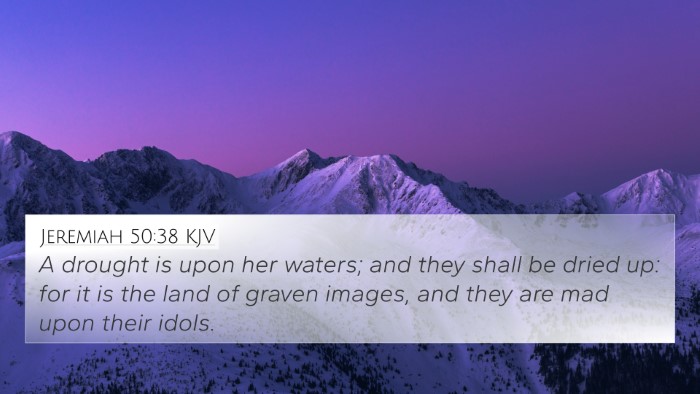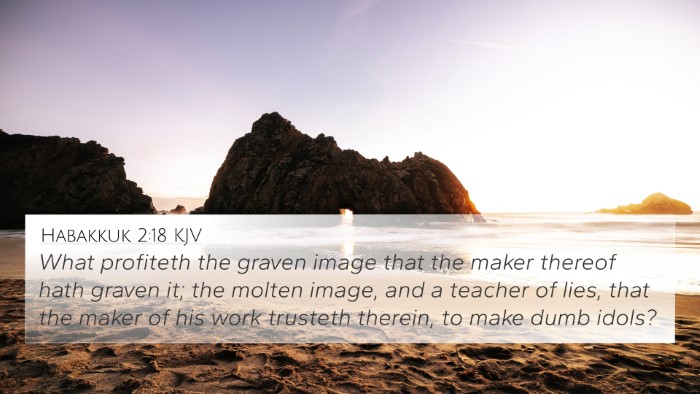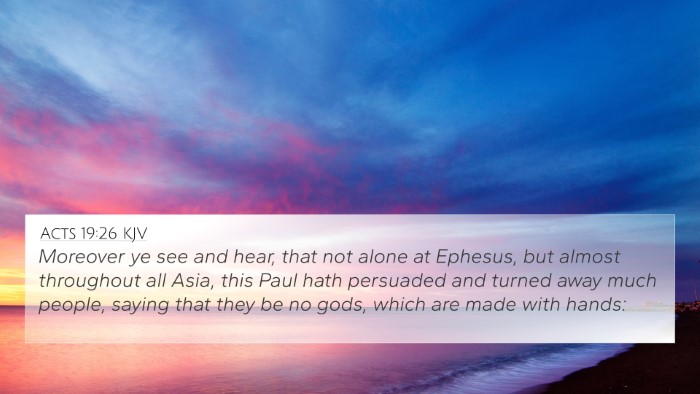Understanding Judges 18:24
Judges 18:24 states, "And he said, 'You have taken away my gods which I made, and the priest, and you are gone away; and what have I more? And how say ye to me, What aileth thee?'" This verse encapsulates a situation of deep personal loss and spiritual desolation.
Contextual Analysis
This passage is set within the narrative of the tribe of Dan as they seek a place to inhabit, leading to an encounter with Micah and the Levite priest. The verse highlights Micah's despair as he realizes that the idol and priest he had invested in have been taken from him, reflecting themes of personal idolatry, loss, and the emptiness of turning to false gods.
Commentary Insights
-
Matthew Henry:
Henry elaborates on the implications of Micah's identity concerning his idols. He notes the fragility of wealth and personal gods that cannot sustain true comfort. Micah's question reveals a profound existential crisis that arises from misplaced trust in material symbols of faith.
-
Albert Barnes:
Barnes points out that Micah's lament underscores the futility of idolatry. The term "gods" is indicative of what Micah believed would provide him direction and peace. His personal investment led to a void that could not be filled when taken from him, showcasing the transient nature of earthly attachments.
-
Adam Clarke:
Clarke comments on Micah's emotional state, emphasizing the consequences of idolatry not just on a communal level but personally. The removal of the idol and priest signifies a detachment from what he considered divine guidance, leaving a profound loneliness.
Theological Reflections
This verse invites readers to reflect on their attachments and the sources from which they seek comfort and identity. It serves as a cautionary tale about the dangers of creating idols, be they physical or metaphorical, and the consequences of relying on them for spiritual fulfillment.
Cross-References
Examining cross-references enhances the understanding of Judges 18:24:
- Exodus 20:3-5 - The commandment against idolatry emphasizes the exclusivity of worshiping God.
- 1 Samuel 4:7-8 - The Israelites' misplaced trust in the Ark of the Covenant reflects similar themes of idolatry.
- Psalm 115:4-8 - Illustrates the futility of idols that cannot see, hear, or speak, paralleling Micah's experience.
- Isaiah 44:9-20 - A scathing critique of idol makers shows the inherent foolishness of worshiping created images.
- Jeremiah 10:14 - Highlights the emptiness of worshiping idols made by human hands.
- Matthew 6:24 - "No man can serve two masters," emphasizing the necessity of loyalty to God over material things.
- Colossians 3:5 - Calls for putting to death earthly desires, which can act as modern-day idols.
- Acts 17:29 - Paul speaks about the nature of God vs. images made by humanity, connecting back to Micah's experience.
- 1 John 5:21 - "Little children, keep yourselves from idols," a direct admonition relevant to Micah's situation.
- Hosea 4:12 - The role of idolatry in Israel's decline, echoing the consequences seen in Micah's life.
Conclusion
Judges 18:24 serves as a profound reminder of the spiritual dangers inherent in idol worship. The despair of Micah illustrates the personal cost of turning away from the true God towards false securities. As believers engage in Bible verse analysis, understanding the connections between Bible verses like this one deepens their comprehension of God’s will and the importance of maintaining a faithful relationship with Him.
Final Thoughts
Utilizing Bible cross-reference guides and studying these connections between Bible verses empowers individuals in their Bible study practices. By recognizing the thematic Bible verse connections and the principles illustrated in Judges 18:24, believers can better navigate their spiritual journeys and avoid the pitfalls of modern idolatry.
